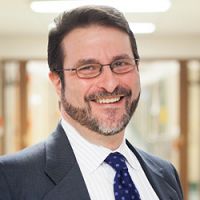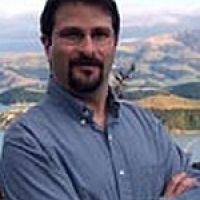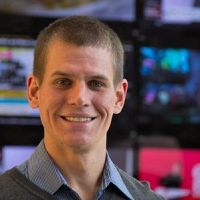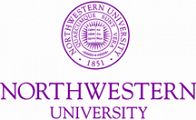IML-CZO Investigator Profiles: Aaron Packman (Northwestern University)
Journalist Michael Pollan once said: “In one handful of soil there are more organisms than there are humans on earth and we are only beginning to understand the vast network of beings right beneath our feet.” The quest to understanding this vast network is part of the research focus of IML-CZO investigator Dr. Aaron Packman.
Dr. Packman – a professor of civil and environmental engineering at Northwestern University – is studying microbial dynamics of the Critical Zone.
“The metacommunity gene sequencing we’re doing is based on extracting all DNA from an environmental sample, like a soil or water sample, and then amplifying a portion that is characteristic for bacteria and archaea,” said Dr. Packman. “The sequencing we are using is intended to identify the presence and diversity of different organisms in the community.
Dr. Packman added that this research was not originally part of the IML-CZO project but he and his research team were able to initiate it with the support of IML directors Praveen Kumar and Thanos Papanicolau as well as the Earth Microbiome Project, an “multidisciplinary effort to analyze microbial communities across the globe.”
Similar to the Earth Microbiome Project, the IML has an interdisciplinary focus which combines researchers and students from fields within engineering and science to those outside of it such as education and journalism.
“Interdisciplinary research is essential to understanding and managing the complexity of the Critical Zone. Most historical work was pursued from a disciplinary perspective, so our available information on the Critical Zone is fragmentary -- a lot of different types of data, but collected at different places and different times,” Dr. Packman said. “The main challenge now is to integrate this information into a holistic understanding of overall Critical Zone functioning, and to use that information to manage land, water, and ecosystems in a sustainable way. That requires an interdisciplinary approach.”
The emphasis on interdisciplinary research is also part of the mission of the Northwestern Center for Water Research which was founded in 2015. Dr. Packman is the center’s director and he said that not only does the center aim to bring together different disciplines but it also aims to bridge Northwestern University – a private college – and businesses with governmental agencies and other public entities.
“The Current public-private partnership will make Northwestern’s Water Center even stronger,” Dr. Packman said in a 2016 press release. “Working with strong industrial, governmental and community partners will help us achieve our goal of developing global solutions for regional problems.”
Dr. Packman holds degrees from Washington University (B.S. ’91) in St. Louis and the California Institute of Technology (M.S. ’92; PhD ‘97) in Pasadena. He has also studied in Chile, Italy, New Zealand, and Sweden.
“I have found that people are much the same everywhere I've been, but the landscapes vary tremendously. Growing up in the Mississippi River Valley, I was used to really big rivers but a really flat landscape. I really like working on different rivers around the world, and I also like working in diverse landscapes,” he said.
Part of the goal of the IML-CZO is to not only inform other scientists and researchers about various aspects of the Critical Zone but also to educate the public. Dr. Packman said that his research is of particular interest to Midwesterners because of the impact that current agriculture practices have on the landscape and the associated public health issues.
“We need to be able to sustainably manage water, soil, and microbial landscapes. In the Midwest, we've designed the entire landscape to produce food, but we don't yet understand how this has changed the water and soil microbial ecosystems. It is important to know this so we can maintain agricultural productivity while avoiding potential problems like waterborne disease.”
By Nick Fetty (Journalism, University of Iowa)
This is part of a series of articles featuring investigators involved in the IML-CZO project.
Related News
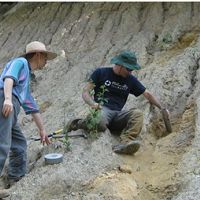
IML-CZO Investigator Profiles: Andrew Stumpf (Illinois State Geological Survey)
01 Apr 2016 - Between roughly 2 million years ago and 10,000 years ago, during the Pleistocene Epoch or “Ice Age,” massive glaciers swept across...
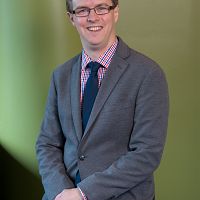
IML-CZO Investigator Profiles: Adam Ward (Indiana University)
18 Mar 2016 - Farming in the Midwest provides food and energy for the rest of the United States and even other parts of the world but some of the agricultural...
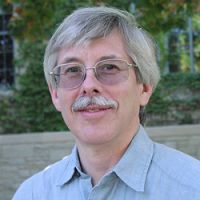
IML-CZO Investigator Profiles: Neal Blair (Northwestern University)
11 Mar 2016 - While urban and rural areas are seemingly polar opposites the two different areas depend greatly on one another, according to IML-CZO investigator...
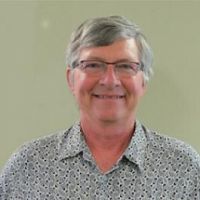
IML-CZO Investigator Profiles: Art Bettis (University of Iowa)
26 Feb 2016 - Iowa poet laureate Mary Swander once said that the Hawkeye State has “the most altered landscape in the United States.” This...
Explore Further
